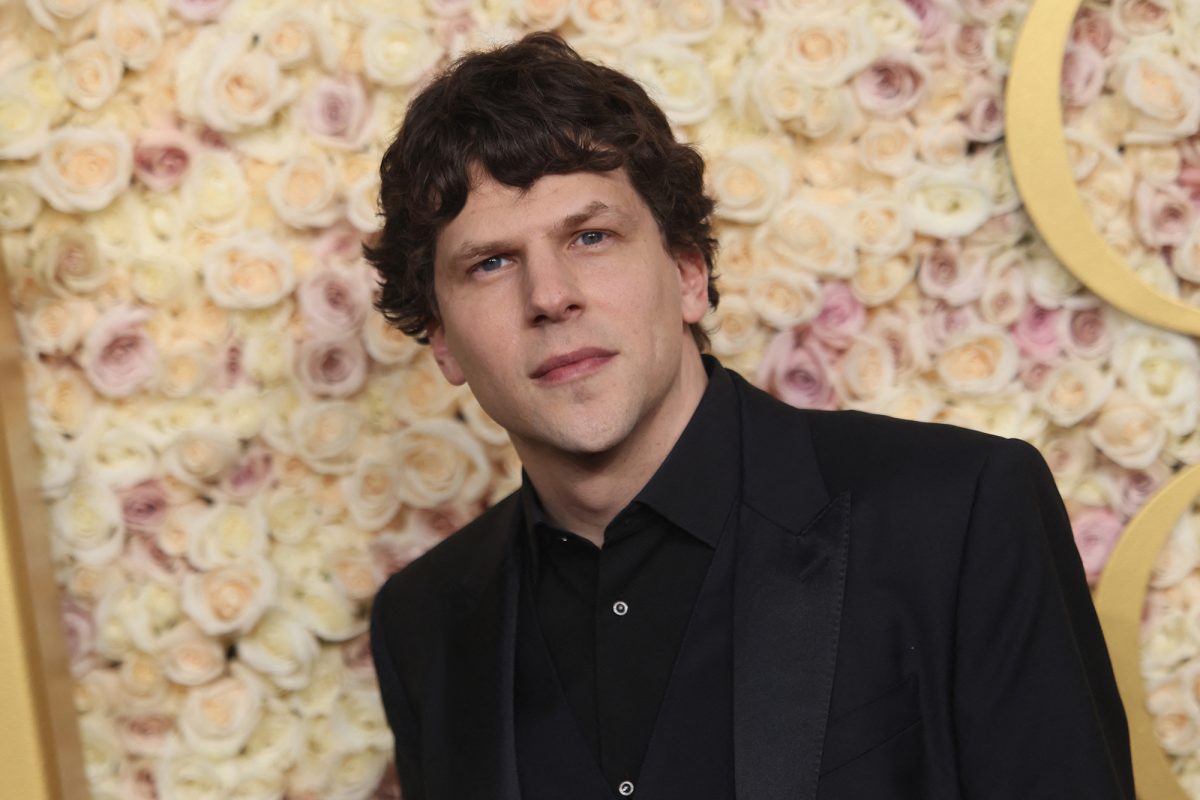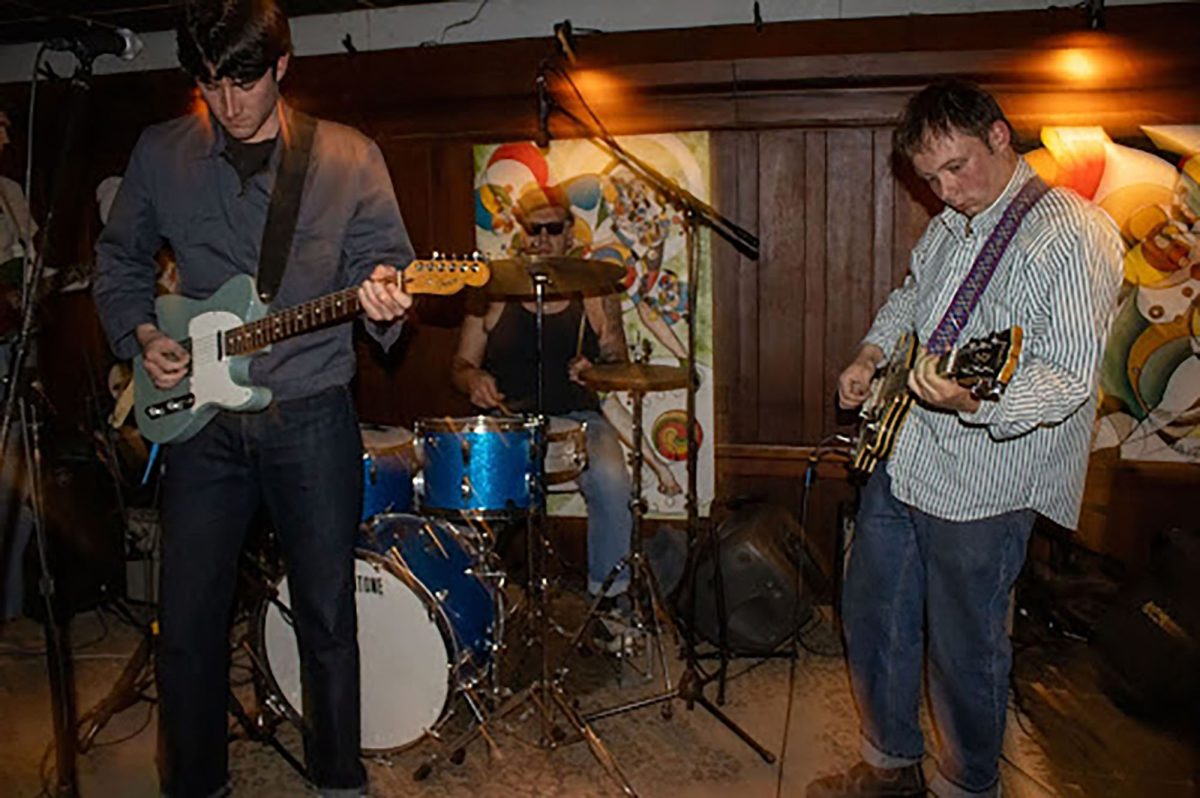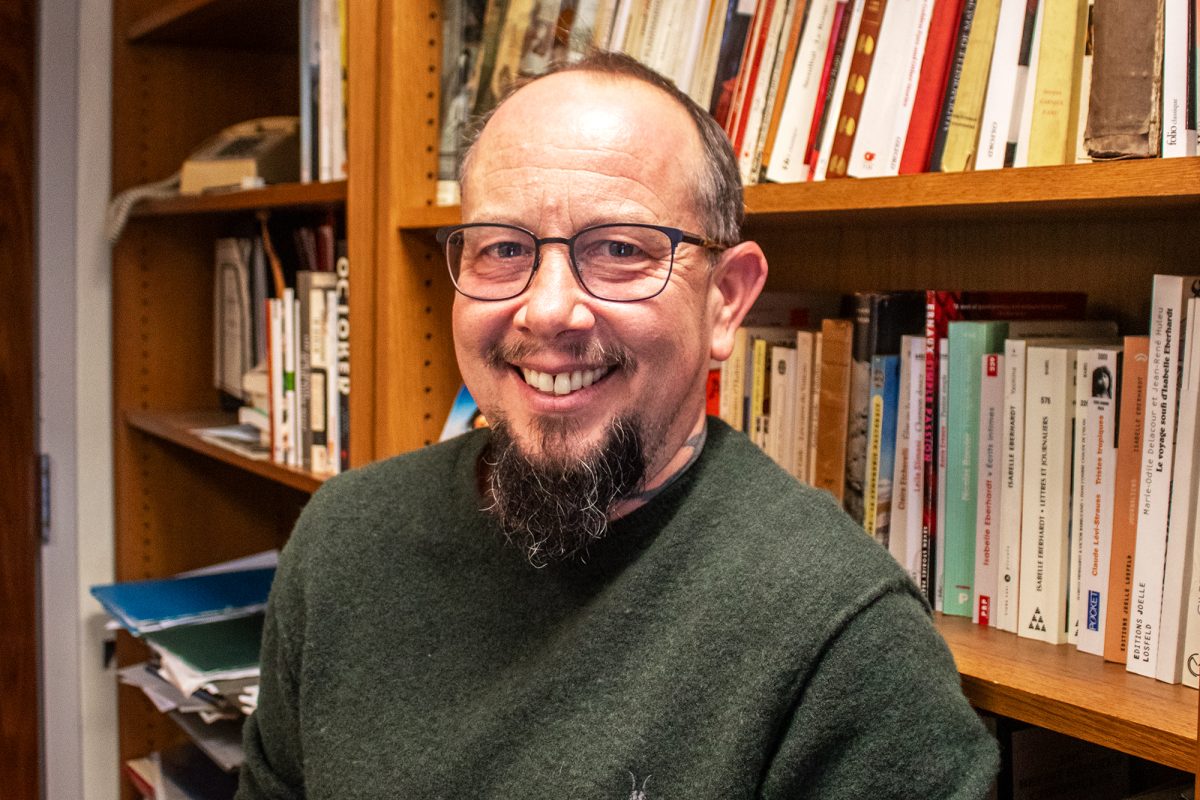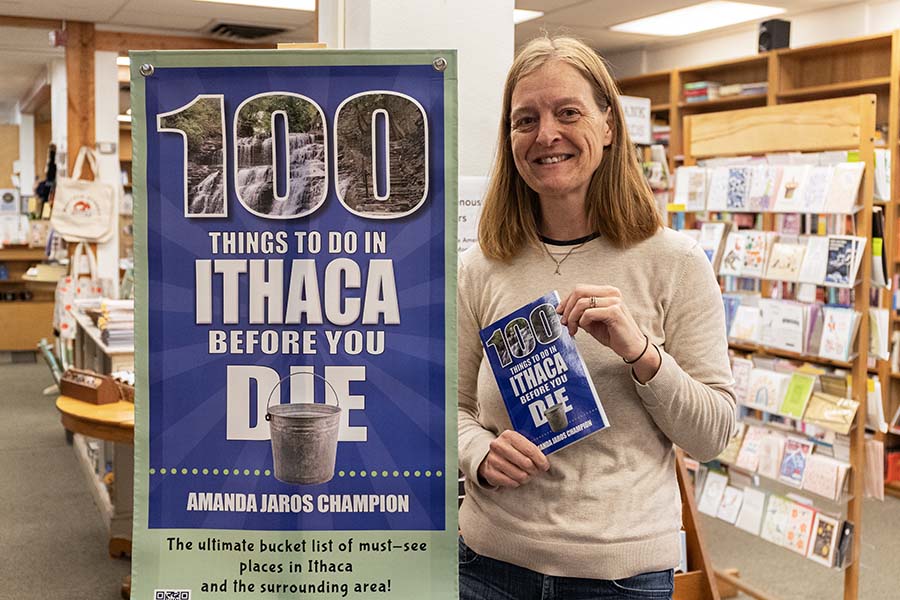Jesse Eisenberg is coming to Ithaca College on Sept. 15 as a Park Distinguished Visitor. The Ithacan spoke to the award-winning screenwriter, director, and Emmy and Oscar-nominated actor in an exclusive interview on the phone.
Along with his Oscar-nominated performance in “The Social Network” in 2011, Eisenberg wrote, directed and co-starred in Oscar-nominated Best Original Screenplay “A Real Pain.” He also played roles in “Zombieland” (2009), “Rio” (2011) and “Justice League” (2017), among others.
Life and Culture Editor Sheelagh Doe spoke with Eisenberg about his work on “A Real Pain” and how his college experience impacted his award-winning career.
This interview has been edited for length and clarity.
Sheelagh Doe: In your movie “A Real Pain” you mentioned Ithaca briefly. Where did that come from?
Jesse Eisenberg: I wanted a city upstate … that could theoretically have kind of cool artsy people. So that’s where Benji gets his good weed from … a cool barber in Ithaca.
SD: I read an interview between you and a reporter at The New Yorker before “A Real Pain” came out. You had said that you write assuming that no one’s going to see it … When do you get to the moment when you know what you’ve written is something significant?
JE: About a third of the way through a play or a film, I’ll know if the thing is viable, or if it’s going to die on the vine. “A Real Pain” was originally set in Mongolia, and I was about a third of the way through with these two guys going to Mongolia, and I could tell it was not going to work. … So that script died and then became reanimated … but in terms of actually people watching something … You never know how people are going to react, and a lot of it has to do with kind of timing and so many intangible factors that are impossible to predict.
SD: When you were in college, what did you write about? [Was] there a shift [in what you wrote about]?
JE: When I was younger, I wrote just like jokes, one-liners and comedy sketches … When I went to college, I started majoring in anthropology, and then suddenly all of my writing was about Americans interacting with people from other places. So I have four plays that were produced in New York and England, and they’re all about Americans interacting with somebody from another culture … “A Real Pain” is an exploration of Americans interacting with this foreign thing … There’s an anthropological background behind the movie. How do these Americans go into another culture and interact with it?
SD: What is the impact, in your opinion, [that] student filmmakers can have, and what makes a student perspective unique?
JE: I just know that I was more creative and engaged with my own ideas when I was younger. I look back on the stuff I wrote when I was college age … and it’s brimming with kind of an energy. But it’s messy … it’s unproducible stuff … its ideas are kind of really exciting, but not fully realized yet … I am 41 now, so I miss that excitement. … That’s why [the] student perspective is so important … and so exciting to me, because it often is coming from … the first time you really get to put your ideas down in a way that you know feels official, and so that excitement is still there. People aren’t as jaded. People have a sense of … trying to say important, big things in a way that feels fresh and pure and … undiplomatic.
SD: How do you find newness in a career that you’ve been in for so long?
JE: By just trying to figure out things I don’t understand in my life … like in “A Real Pain.” I guess it was how to think about pain and privilege when my life is quite good compared to my ancestors, and my life is quite good compared to a fictional cousin. I can’t exactly figure out how to think about that, so it kind of comes out as a movie. The things that I already have comfortable thoughts about or … resolute thoughts about, are not really interesting as a story. … They would become political statements, rather than trying to figure out the squishy uncomfortable parts of our lives.
SD: What are the benefits of having experience in multiple facets of the filmmaking process, such as being an actor, writer [and] director?
JE: It’s amazing. I cannot recommend being on sets, in any capacity, more. … I get so much from being on movie sets as an actor. The last movie I acted in [was], [“Now You See Me: Now You Don’t”]. It’s this big, Hollywood, splashy movie. And then the movie I did before that was a $1 million movie where I was playing a Sasquatch in a Sasquatch suit all day — the complete opposite of a big Hollywood movie. If I was just directing movies, I would [have] never [seen] … the sets of either one of those movies, because I don’t make big Hollywood movies, and I don’t make really obscure art films about Sasquatches. … And that’s just this wonderfully rare advantage I have from being an actor, getting to see how not only different directors work, but how different projects from all ends of the filmmaking spectrum come together.
SD: I’ve been pretty nervous about this interview, so I was wondering if … there’s any moments throughout your career that you’ve had to deal with having bad nerves, and if there’s anything that helped you.
JE: Yes, yes, yes, all the time, always. I’m just a generally very nervous person and so being in an industry where there’s public scrutiny is not great for my anxiety and the only way I really process it … is trying to remember or understand that a lot of that anxiety comes from excitement and anticipation. … It’s not all necessarily terrible. … I just try to be involved with as many things as possible, and it allows me to be less nervous about each one … I don’t care if a lot of people see the things I do or hear about them, I just try to stay busy.
SD: Are there any pieces of advice … that you would give to college students pursuing movie-making or acting?
JE: My current assistant/associate producer is an Ithaca alum named Eli Bernstein [’20], and he is an inspiration to me. … This guy was first on set at 4:30 in the morning, last to leave … and just had this wonderful attitude. Very helpful, helped out with jobs that weren’t even his particular jobs and just a joy to be around, even when times were difficult. … It was really inspiring to see him. He speaks very highly of Ithaca, of course … The people that I’ve worked with, [who] assume that they’re better than the jobs that they have, don’t really succeed. It’s all the people who are kind of humble and grateful to be doing whatever job that they’re currently doing who really do well, so … that would be some advice, and it comes from one of your students.






















Don Doe • Sep 10, 2025 at 9:15 am
I love so many quotes; this one sticks out speaking about a nostalgia for the college days:
“ People have a sense of … trying to say important, big things in a way that feels fresh and pure and … undiplomatic.”